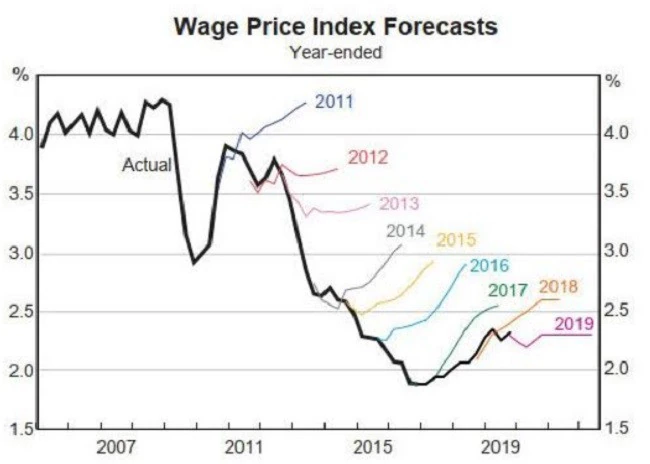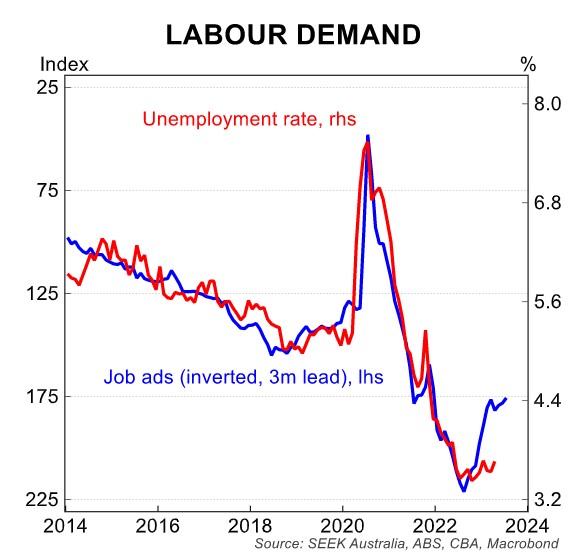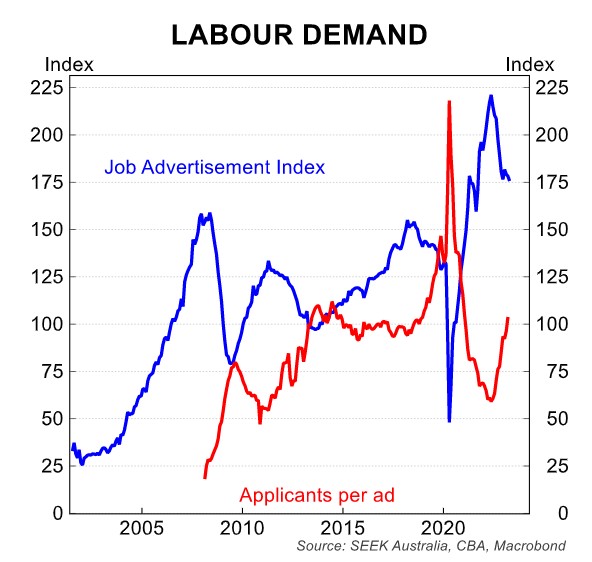The governor of the Reserve Bank of Australia, Philip Lowe, reportedly engaged in a series of heated arguments with federal Labor MPs last week.
The RBA governor warned them that the large salary increases they were backing would make inflation worse unless they were accompanied by increases in productivity.
Ahead we have the Fair Work decision to boost Awards for 10% of workers and some bumps coming in public sector wages as well.
According to those with knowledge of the situation, when Dr. Lowe suggested that wage increases beyond 2% to 3% without a matching offset via a productivity boost would be inflationary. Some Labour members of the committee effectively accused him of demonising wage rises.
This is no surprise. The RBA has been running interference for low wage growth for a decade. The reason is straightforward. The central bank refuses to include the negative impacts mass immigration on the labour market:

Thankfully, not everybody is so intellectually bankrupt. Gareth Aird at CBA has been on it for years.
He points out that the WPI increased by 0.8% in the March quarter. In Q1 23, the annualised rate was 3.7%, but the six-month rate was only 3.4%.
To put that in perspective, the WPI for the last six months of fiscal year 22 was 3.9% (see adjacent chart). By examining the data in this way, we can see how the actual wage outcome stacks up against the RBA’s forecast.
The RBA predicted a WPI of 3.8%/yr for Q2 23. The WPI for the June quarter needs to grow by 1.0% from the previous quarter for this to happen.
A result like that would be far better than the previous two quarters.
As a result, we think the RBA would have been pleased with the most recent WPI. And that the final number was a touch lower than they had hoped.
Aird also observes that trend unemployment is already higher in April than its June outlook:

As well, the labour market’s secondary indicators are showing signs of weakness. In April, job postings on Seek decreased by 1.4% month-over-month and 19.1% year-over-year.

In March, the number of applications received per job posting increased by 7.7%, and over the course of the year, the figure is up 72.6%.

The competition for open positions increases as the number of applications rises. As a result, the new hire has less leverage to negotiate a higher starting compensation.
To put this in perspective, the number of applicants per open position has returned to its pre-pandemic norm.
Aird also notes that the labour market is expected to cool down in the months ahead, according to the NAB Business survey conducted in April. Forward orders run around three months behind the employment sub-index.
The steep decline in forwards orders since late 2022 is an early warning indication of slower-than-expected employment growth in the months ahead.

That is, Albo’s mass immigration tide has already added 1% to unemployment, which will show up shortly, while a slowing economy will add more in due course.
Private sector wage growth is about to stall.
Compounding the RBA’s failure to understand wages is the sad irony that the mass immigration the central bank refuses to discuss is itself very negative for productivity. It drives capital shallowing as the existing stock of capital is degraded by volumes of activity it was never designed to handle.
As usual, the RBA has no idea about wages.

